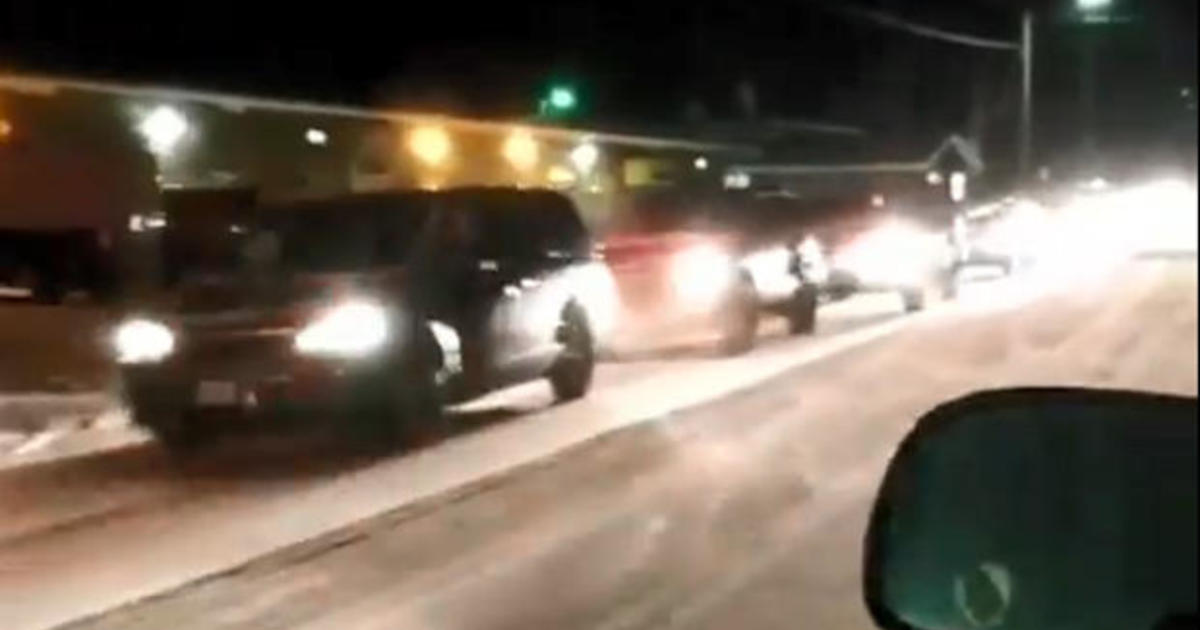
Last Updated Jan 23, 2018 9:42 AM EST
ANCHORAGE, Alaska — A 7.9 magnitude earthquake struck off Alaska’s Kodiak Island early Tuesday, prompting a tsunami warning for a large swath of the state’s coast and Canada’s British Columbia, and watches for the rest of the U.S. West Coast and Hawaii. Officials at the National Tsunami Center canceled the warning after a few tense hours after waves failed to show up in coastal Alaska communities. No serious damage had been reported.
The strong earthquake hit at 12:30 a.m. and was recorded about 170 miles southeast of Kodiak Island in the Gulf of Alaska. Kodiak Island is located about 200 miles southwest of Anchorage, Alaska’s largest city, which was not under a tsunami threat. Reports varied about how long the shaking lasted. In the popular cruise ship town of Seward, about 230 miles northeast of Kodiak Island, fire chief Eddie Athey said the quake felt like a gentle rattle and lasted for up to 90 seconds.
“It went on long enough that you start thinking to yourself, ‘Boy, I hope this stops soon because it’s just getting worse,'” Athey said.
Initially, the USGS said the earthquake was a magnitude 8.2. That prompted the tsunami warning for coastal Alaska and Canada’s British Columbia, while the remainder of the U.S. West Coast was under a watch.
A tsunami warning for the southern coastline of Alaska — from the Aleutian Islands to Southeast Alaska — was downgraded to a tsunami advisory for the coastline east of Seward to Chignik Bay. It was later canceled, CBS Anchorage affiliate KTVA-TV reported.
Watches were canceled for Washington, Oregon, California, British Columbia and Hawaii. Officials in Japan also said there was no tsunami threat there.
CBS Anchorage affiliate KTVA-TV kept viewers up to date:
After the quake hit, warnings from the National Weather Service sent to cellphones in Alaska warned: “Emergency Alert. Tsunami danger on the coast. Go to high ground or move inland.”
Kodiak officials warned residents to evacuate if they lived in low-lying areas.
About two hours after the quake, the city of Kodiak, which was projected to see the first wave at about 1:45 a.m., still had no reports of a wave hitting.
Lt. Tim Putney of the Kodiak Police Department said: “We haven’t seen anything yet or had any reports of a wave.”
However, officials were telling people to hold fast at evacuation centers until further notice. He said the town has several shelters above the 100-foot mark, and they were still encouraging people below that level to evacuate.
The earthquake woke Putney up out of a dead sleep, and he estimates it shook for at least 30 seconds.
“I’ve been Kodiak for 19 years that was the strongest, longest lasting one I’ve ever felt,” he said by telephone.
But he said the police department has received no reports of damage.
Kodiak emergency officials said they’d received two reports that tide levels in the city’s channel were fluctuating from six inches to a foot. Such fluctuations can sometimes be a warning of a coming tsunami.
Kodiak police posted a video warning of their Facebook page.
Sirens went off in Kodiak:
Also in Seward, Alaska:
San Francisco officials tweeted an urgent message: “If you are w/in SF & 3 blocks of the Pacific Coast or w/in 5 blocks of SF Bay, PREPARE TO EVACUATE SO YOU ARE READY IF EVACUATION IS NEEDED. Check on neighbors who may need help.”
Officials later tweeted: “National Tsunami Warning Center has CANCELLED the Tsunami Watch for San Francisco.”
The U.S. Geological Survey tweeted an explanation of what caused the quake:
© 2018 CBS Interactive Inc. All Rights Reserved. This material may not be published, broadcast, rewritten, or redistributed. The Associated Press contributed to this report.
